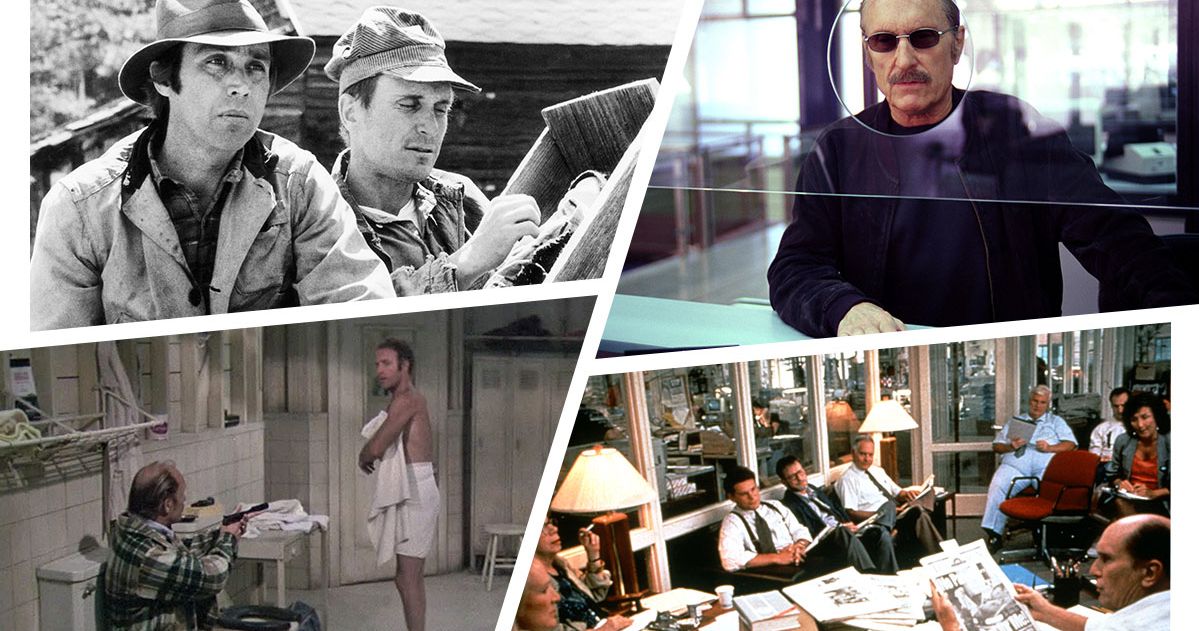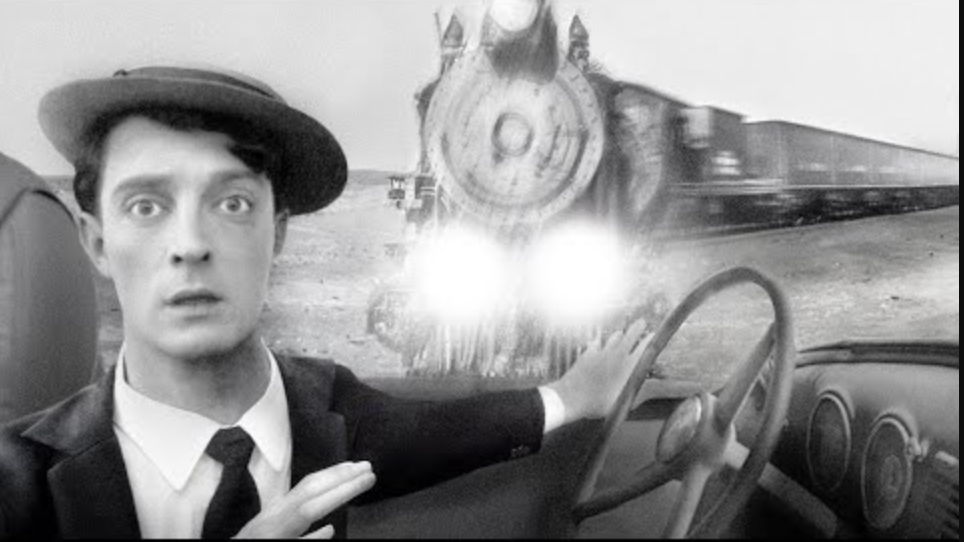#film-history
#film-history
[ follow ]
fromInsideHook
2 weeks agoThe 10 Books You Should Be Reading This February
What does it mean to dig into the past, to uncover obscure facts about bygone decades or centuries and bring them to light in 2026? There's a lot of that in this rundown of February books, everything from a clear-eyed look at someone who history has depicted as a monster to investigations into the past situated a little closer to home.
Books
fromArtforum
2 weeks agoCommercial Break
AT FIRST GLANCE, the phrase "avant-garde advertising" might seem like a contradiction in terms: The avant-garde is assumed to be inherently anti-capitalist and the realm of advertising crassly commercial. But the involvement of avant-garde artists with advertising is in fact rich, complex, and long-standing, encompassing a full century of collaborations, critiques, and reworkings of all sorts. That entanglement-in all its diversity-is the topic
Film
fromRoger Ebert
1 month agoRemote-Droppers and Jeff Bridges: Nick Digilio on His Book About 40 Years Reviewing Movies | Interviews | Roger Ebert
Nick Digilio has been a movie critic for 40 years, for many of those years on WGN radio, now with a popular podcast and hosting screenings in Chicago. And I've been talking to him about movies for 25 of those years. I still remember our first conversation, which included a discussion of "Donnie Darko" and the mid-century Hollywood director Douglas Sirk. He usually interviews me, but in honor of his new book, 40 Years, 40 Films, we switched, and I got to interview him.
Film
fromFilmmaker Magazine
1 month agoDP Michael Bauman on "One Battle After Another"
Anderson's One Battle After Another continues a resurgence of VistaVision that now includes The Brutalist and Yorgos Lanthimos' Poor Things and Bugonia. The format, which uses 8-perf 35mm traveling through the camera horizontally rather than vertically to create a larger negative, gained popularity as a non-anamorphic widescreen alternative in the mid-1950s. It was used for everything from Biblical epics ( The Ten Commandments) to musicals ( White Christmas) to Alfred Hitchcock thrillers ( Vertigo and North by Northwest).
Film
fromBuzzFeed
1 month ago50 Extremely Fascinating Pictures Of People Throughout History I Can Pretty Much Guarantee You've Never Heard Of
1. The very first iteration of Ronald McDonald was created by Willard Scott in 1963: 2. The two people depicted in Grant Wood's "American Gothic" actually exist. This is what they looked like: 3. This is Margaret Gorman, the woman who won the very first Miss America competition in 1921: 6. This is Conrad Veidt, the man whose performance in the 1928 film The Man Who Laughs inspired the look of the iconic villain the Joker:
Film
fromThe New Yorker
2 months agoThe Delirious Cinematic Artifice of Bi Gan's "Resurrection"
"Resurrection," a magnificent intoxicant of a movie from the thirty-six-year-old Chinese director Bi Gan, is no ordinary love letter to cinema. It's more like a love labyrinth-a multi-tiered maze, full of secret passages, shadowy rooms, and winding staircases, with a giant movie theatre, sculpted from candle wax, waiting at the incandescent finish. It's an ecstatic, extravagant work of artifice and imagination, and, from the start, Bi and his collaborators (they include the director of photography Dong Jingsong and the production designers Liu Qiang and Tu Nan) embrace their craft with a childlike sense of wonder and play.
Film
Film
fromwww.npr.org
2 months agoFrom asbestos to soap to paper, Hollywood has used many tricks to let it (fake) snow over the years
Fake snow evolved from feathers and potato flakes to hazardous chemical mixtures like asbestos, prompting a shift toward safer materials while preserving cinematic snowfall effects.
fromKqed
2 months agoThe Best Movie Moments of 2025 | KQED
Our insistent, perennial question is, "And then what happened?" But "what" only matters if we care about "who," and how they react and respond to what happens. The characters who stuck with me this year were on singular, propulsive journeys. They may have boarded a ship or hopped a train or ridden a spaceship, or stayed home and picked up a camera or a Ping-Pong paddle.
Film
fromwww.theguardian.com
2 months agoI prepared for the role by playing in my room': the making of Toy Story as it turns 30
Toy Story was one of the most influential films in modern cinema. Directed by John Lasseter and produced by Pixar with release through Disney, it was the first fully computer-animated feature film, leading studios worldwide to pivot away from hand-drawn animation. The story features toys who spring to life when humans are not looking, notably Woody (Tom Hanks), a pull-string cowboy doll, and Buzz Lightyear (Tim Allen), a flashy new space-ranger who threatens Woody's status as Andy's favourite.
Film
fromOregon ArtsWatch * Arts & Culture News
3 months ago'Clint: The Man and The Movies': Shawn Levy's latest celebrity bio is his most successful yet * Oregon ArtsWatch
With Clint: The Man and the Movies, Portland author Shawn Levy provides the definitive biography of the iconic yet somehow ineffable Clint Eastwood, the 1950s TV cowboy who became a squinting big-screen megastar and a two-time Oscar-winning director and whose latest, last year's Juror #2, was released in his 95th year. The book has received rave reviews from A.O. Scott in The New York Times and Richard Brody in The New Yorker,
Books
fromOpen Culture
3 months agoThe 135 Movies You Must See to Understand Cinema
If you wish to become a cinephile worthy of the title, you must first pledge never to refuse to watch a film for any of the following reasons. First, that it is in a different language and subtitled; second, that it is too old; third, that it is too slow; fourth, that it is too long; and fifth, that it has no "story." These categories of refusal are what Lewis Bond, co-creator of the YouTube channel The House of Tabula, calls
Film
fromwww.independent.co.uk
5 months agoThe true story of Butch Cassidy and the Sundance Kid
Whether it's investigating the financials of Elon Musk's pro-Trump PAC or producing our latest documentary, 'The A Word', which shines a light on the American women fighting for reproductive rights, we know how important it is to parse out the facts from the messaging. At such a critical moment in US history, we need reporters on the ground. Your donation allows us to keep sending journalists to speak to both sides of the story.
US politics
fromOpen Culture
5 months agoWatch Momijigari, Japan's Oldest Surviving Film (1899)
At first, film sim­ply record­ed events: a man walk­ing across a gar­den, work­ers leav­ing a fac­to­ry, a train pulling into a sta­tion. The medi­um soon matured enough to accom­mo­date dra­ma, which for ear­ly film­mak­ers meant sim­ply shoot­ing what amount­ed to stage pro­duc­tions from the per­spec­tive of a view­er in the audi­ence. At that stage, we could say, film still had­n't evolved past sim­ple doc­u­men­tary pur­pos­es, hav­ing yet to incor­po­rate edit­ing, to say noth­ing of the oth­er qual­i­ties we now regard as char­ac­ter­is­ti­cal­ly cin­e­mat­ic.
Film
fromwww.ocregister.com
5 months agoHow Michael Koresky explores Hollywood's gay golden age in Sick and Dirty'
Michael Koresky has already had a busy year. In April, the filmmaker and movie critic was promoted to senior curator of film at the Museum of the Moving Image, the prestigious institution in Queens, New York; he was previously the museum's editorial director. He still teaches college and works with the Criterion Collection, the much-beloved video label that restores and distributes important films from both the past and present.
Film
fromArtforum
8 months agoP. Adams Sitney (1944-2025)
A cofounder of New York's Anthology Film Archives, Sitney coined the term "structuralism" to identify the minimalist, formalist experimental film that arose in the 1960s, writing extensively about the form in a manner that was as clear and straightforward as his stated disdain for prestigious prizes.
Independent films
from48 hills
8 months agoScreen Grabs: Tribute to 100 years of Robert Altman, a cynic's New Hollywood takeover - 48 hills
Robert Altman's M*A*S*H introduced a new, immersive storytelling style, mixing gore and humor, while subverting traditional portrayals of war, establishing Altman as a unique voice in cinema.
Independent films
Film
fromwww.theguardian.com
8 months agoWe were like brothers, but we scrapped': the chaos and pranks that shaped The Goonies by its cast and crew
The Goonies remains a cherished adventure film due to its themes of friendship and excitement.
A sequel to The Goonies has been announced by Warner Bros, renewing interest in the franchise.
fromInverse
8 months ago75 Years Ago, A Shockingly Dark Sci-Fi Adventure Tried To Predict The Space Race
Like the making of the movie itself, Rocketship X-M doesn't waste any time, thrusting its heroes into deep space just minutes after their pioneering mission to the Moon is announced.
Independent films
[ Load more ]
























